Xhol Caravan interview with Hans-Jürgen Fischer
Xhol Caravan originally started out as the ‘Soul Caravan’, but by the time of their debut Electrip, the members renamed the group to ‘Xhol Caravan’ and started to play much more bizarre and even ‘psychedelic’ mix of jazz and progressive rock. Electrip is one of the first ‘krautrock’ albums, as it was already released in 1969. Hans-Jürgen Fischer was their original member. Well respected saxophonist and flutist, who was also part of many other projects, including Embryo. He shared his story with us.
Where and when did you grow up? Was music a big part of your family life?
Hans-Jürgen Fischer: I grew up after World War II in a conservative bourgeois family with Nazi involvement. I still had six siblings and we were in need because my father had to go to jail for a year. My mother sold the piano to get groceries for me and the siblings. My parents loved classical music. I loved Elvis Presley, Gene Vincent, Little Richard, etc., a real contrast.
When did you begin playing music? What was your first instrument? Who were your major influences?
When I was 16 years old, I wanted a clarinet for Christmas, and I got it too. I exchanged it for a soprano sax because of Sidney Bechet. My first band was called ‘The Dusty Birds’ and we played Dixieland. Then I got an alto sax.
Soul Caravan was formed in Wiesbaden, Germany in early 1967 by Tim Belbe on saxophone; Hansi Fischer on saxophone & flute; Klaus Briest on bass guitar and three Americans; Gilbert ‘Skip’ van Wyck on drums and singers James Rhodes and Ronnie Swinson. Early concerts consisted mostly of cover versions of American soul artists, such as Otis Redding and James Brown, but the band soon began to rely almost entirely on its own material. What can you tell us about some of the early material you composed? Where did you play and how did you get the idea to form a collective of six musicians?
Tim Belbe, whom I knew from high school, had a band called ‘Tim and the Times’ and asked me after the military in 1966, if I wanted to join the band. I joined the band after only one rehearsal together. He already had the drummer Skip van Vyck, who was at the Air Force in Wiesbaden. After that he also got The Soul Brothers; James and Ronnie. Since then, the Soul Caravan was born. Nobody else could do Sam & Dave covers and deliver a stage show including jumps in the balancing act, or even bring James Brown title.
What kind of music did you play very early on?
Previously, the band played rock and roll, boogie and ballads. In the Air Force, I did not notice anything about racial segregation. Black and white grooved together in the clubs.
After adding Werner Funk on guitar, the band’s first studio album, Get in High, appeared on the German CBS label in December 1967. How did you get signed to CBS? What are some of the strongest memories from recording it?
The leading concert mediators in Germany for jazz and pop (Horst) Lippmann and (Fritz) Rau heard us and arranged that we play as the opening act to Aretha Franklin in the ‘Jahrhunderthalle’ in Frankfurt-Höchst. That was a furious one! It was a success for us and brought many new gigs. Horst Lippmann then offered us the production of an album on CBS and claimed that good people needed only two studio days. We practiced like animals! Henry Gaines, James Rhodes and myself had luckily enough material to record. Lippmann then wanted to have some ‘free’ guitar and saxophone input. The result can be heard on “Get In High, Shotgun”, “African Song” and “Psychodelic Soul”.
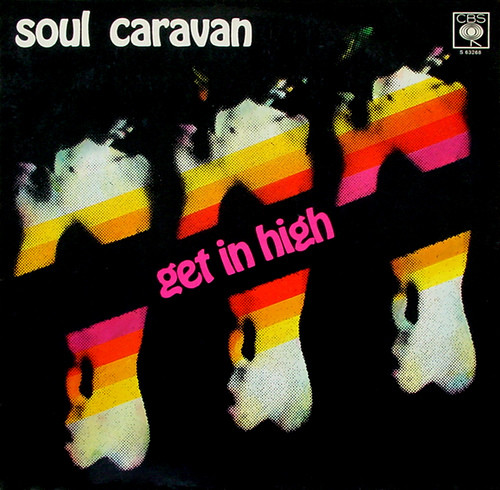
You were very atypical band for the music scene in Germany at the time.
The special thing for us was the collaboration with two real Soul Brothers (later there were four black singers). Back then we were the only ‘guitar’ band with brass players that could really play soul music. Later, the band of Pete Lancaster came along, with whom we played in the large discotheques like Big Apple in Wiesbaden and Augsburg. Later, I played with him as a guest.
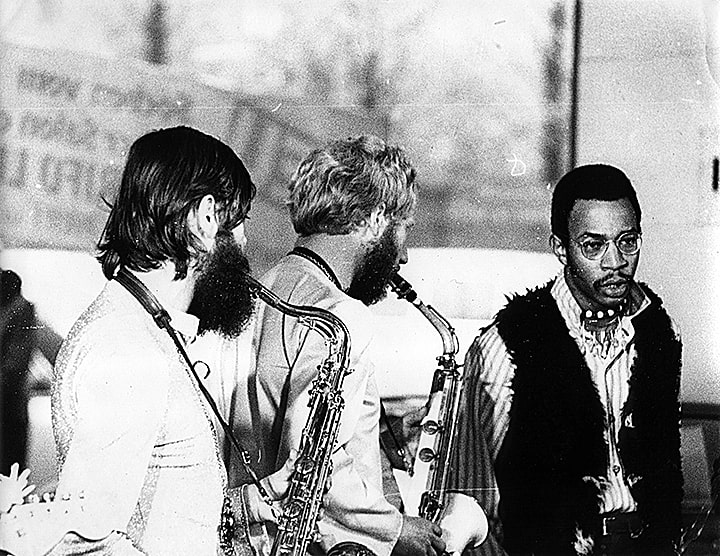
How was the band accepted by the audience?
We were without a doubt the best soul band in Germany and had full clubs everywhere. The people were fascinated by the black singers who spent most of their time exhausting themselves and often sweating so that the water ran down their faces. Joachim Ernst Beerend, the great jazz moderator and author, brought us into the Berlin Jazz Days as a backing band for the singer Carla Thomas. We played with her, e.g. “Knock On Wood” and “Baby” and also All Green’s titles. Heinz Bonsack heard us there and brought us to his hometown Altena in 1969 and also in 1970, where we performed (both concerts were recorded. They appeared on CD).
“Hair and beards got longer.”
Political disturbances in 1968 were reflected in the band’s move towards a more jazzy, psychedelic sound and a change of name to Xhol Caravan. Swinson left the band and returned to the United States at about this time. Would you mind explaining what was the main reason to move towards more improvisational music?
With the upcoming ‘underground’ movement, soul music slowly disappeared. Hair and beards got longer, even dyed shirts and velvet pants replaced the shopping fashion. Soul became just Xhol, so we could build on our reputation and yet make something new. The improvisation was connected with the idea of freedom of the moment.
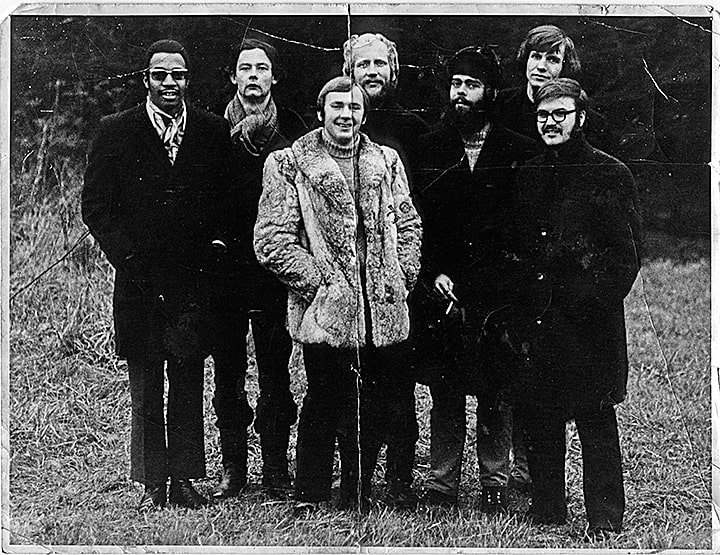
“The idea of the group as a kind of collective played an important role.”
Formation of Xhol Caravan: Organist Gerhardt Egmont “Öcki” Von Brevern joined at the start of 1969. Rhodes left in August 1969, as did Funk, leaving the band without a guitarist. Van Wych took over vocal duties. What was the main concept behind Xhol Caravan?
We tried to develop a balance between composition and improvisation. The idea of the group as a kind of collective played an important role. It was important to be a group as a whole, without any bandleader. It worked as a kind of musical organism that creates the sound. The loudspeakers of all instruments including for the saxophones were placed in a semi circle behind the musicians, so that everybody could hear each other and we got a sort of collective sound. The saxophones were equipped with their own pickups and ran on separate effects and reverb units. Wah devices were used on the saxophone. This is how the sound of electric saxophones and organ was created. You can see cables on the saxophones on many photos.
How did you get in touch with Hansa that released your Electrip album?
We played at a casting at Südwestfunk and Peter Maisel from Hansa heard us with Acapulco Gold, which he really liked. He wanted to spice up his hit label and offered us the production of an album where we should have a free hand. When you listen to our piece “Pop Games”, you will hear some Micky Mouse voices, which are fooling around with Peter Maisel, our producer from Ariola. On Electrip you can hear and read that Peter Maisel flushed the toilet, which was actually us fooling around with him. Our single release “Planet Earth” / “So Down” was released a few months before it (with James Rhodes). Originally “So Down” was titled “So Down, So Damn, So Blue” and was shortened by Ariola without asking us.
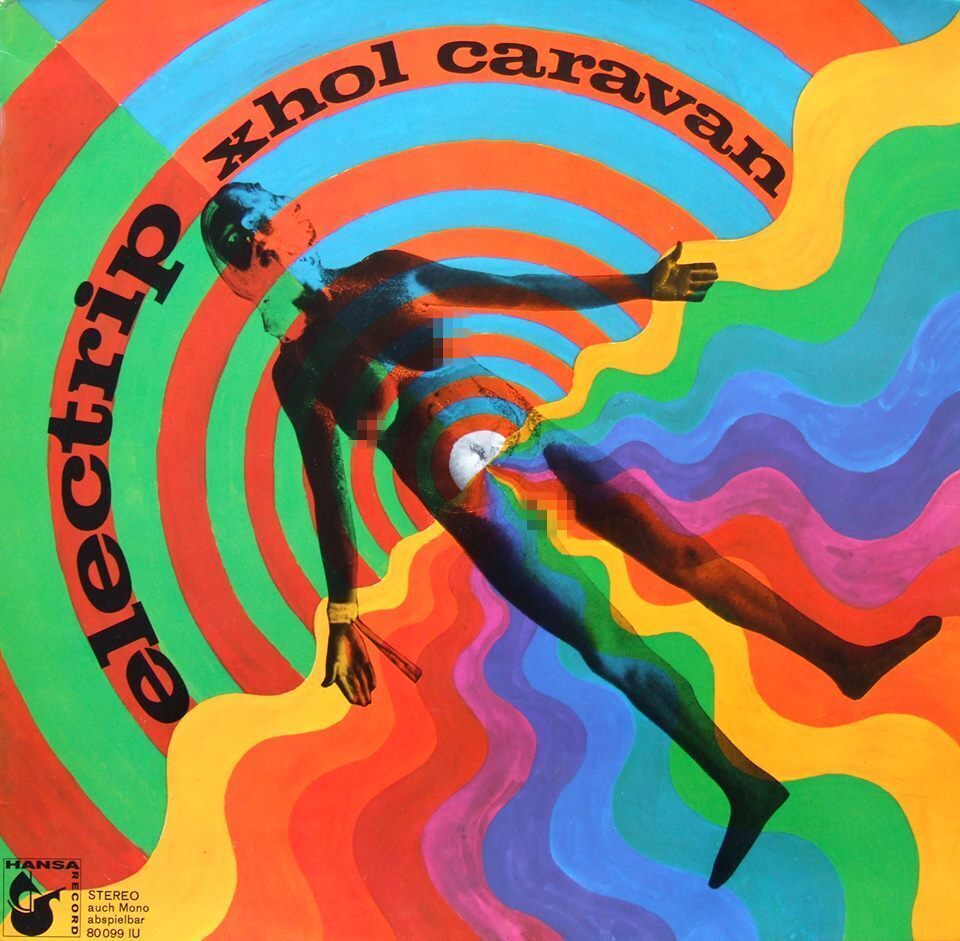
This is even before Tangerine Dream, Kraftwerk and Amon Düül II and should be considered as one of the first, if not the first ‘krautrock’ album. What was the concept behind it? Where did you record it and what are some of the strongest memories from recording it?
Electrip was produced at the Ariolo Studio in Berlin overlooking the Berlin Wall. We only had two days for the recording. We insisted that all the songs should be played at the same time and not overdub important parts of it. We also refused separate cabins, but accepted only loose walls between us. A good eye contact had to be. Subsequently, smaller effects were added here and there.
You probably spend a lot of time in the studio to do all the sound manipulations?
Not really. All of our sound manipulations were already tested while playing ‘live’.
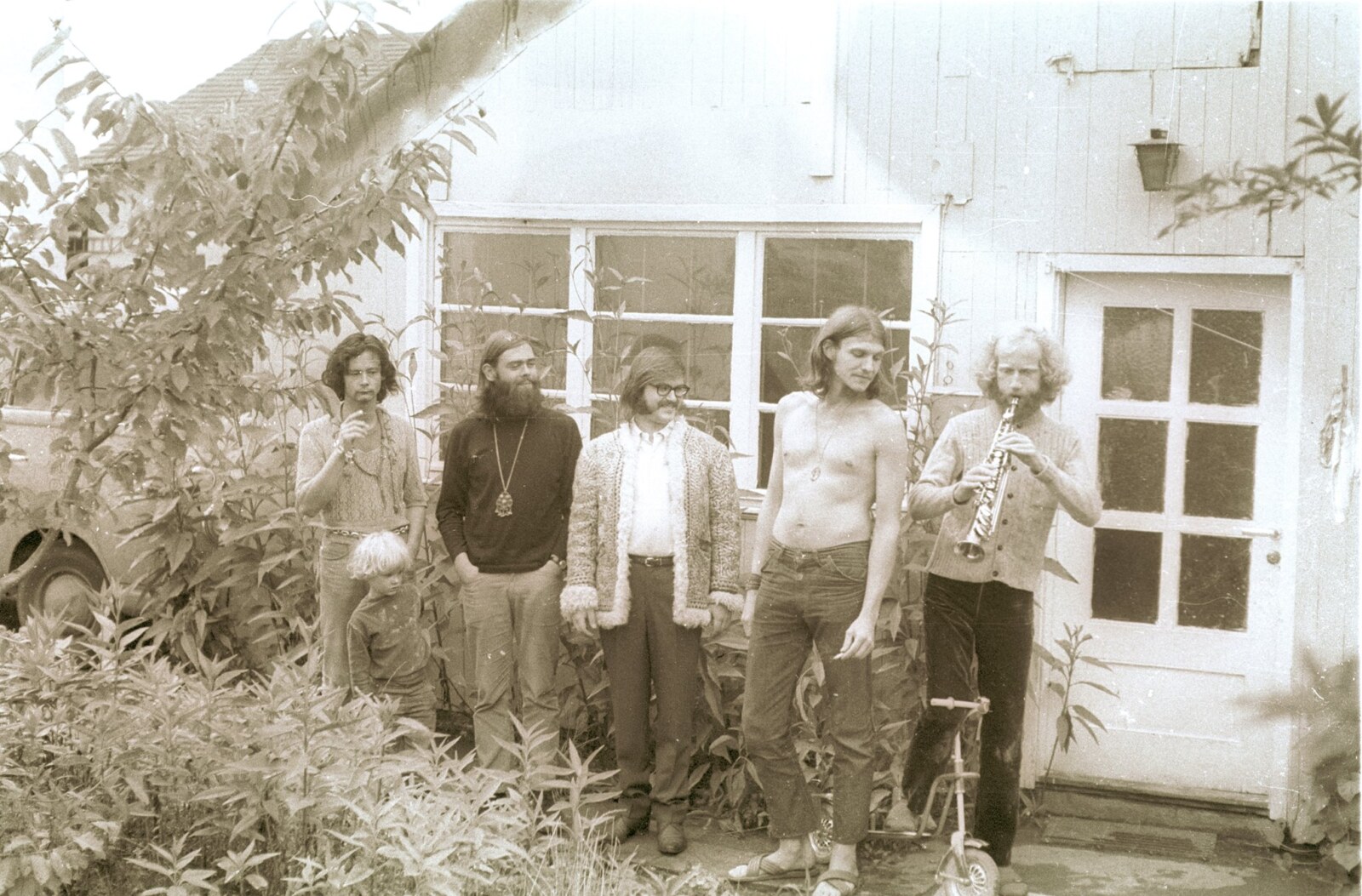
What about the cover artwork? What’s the story behind that?
The cover artwork was designed by Gigi Brevern, wife of organist Öcki Brevern. She had a degree from the Art School Wiesbaden. It was her idea to make an artwork that would represent the sound and the concept of the group. Nude human figure was used, of which I still have deductions, since it was taken together to represent a Hermaphrodite. The head consisted half of me and Tim Belbe, arms, legs and cock are from the drummer Skip van Vyk, the bosom is from his girlfriend and the belly is by bassist Klaus Briest. Today there are T-shirts with Xhol Caravan and the Hermaphrodite on it, it’s a real eye-catcher.
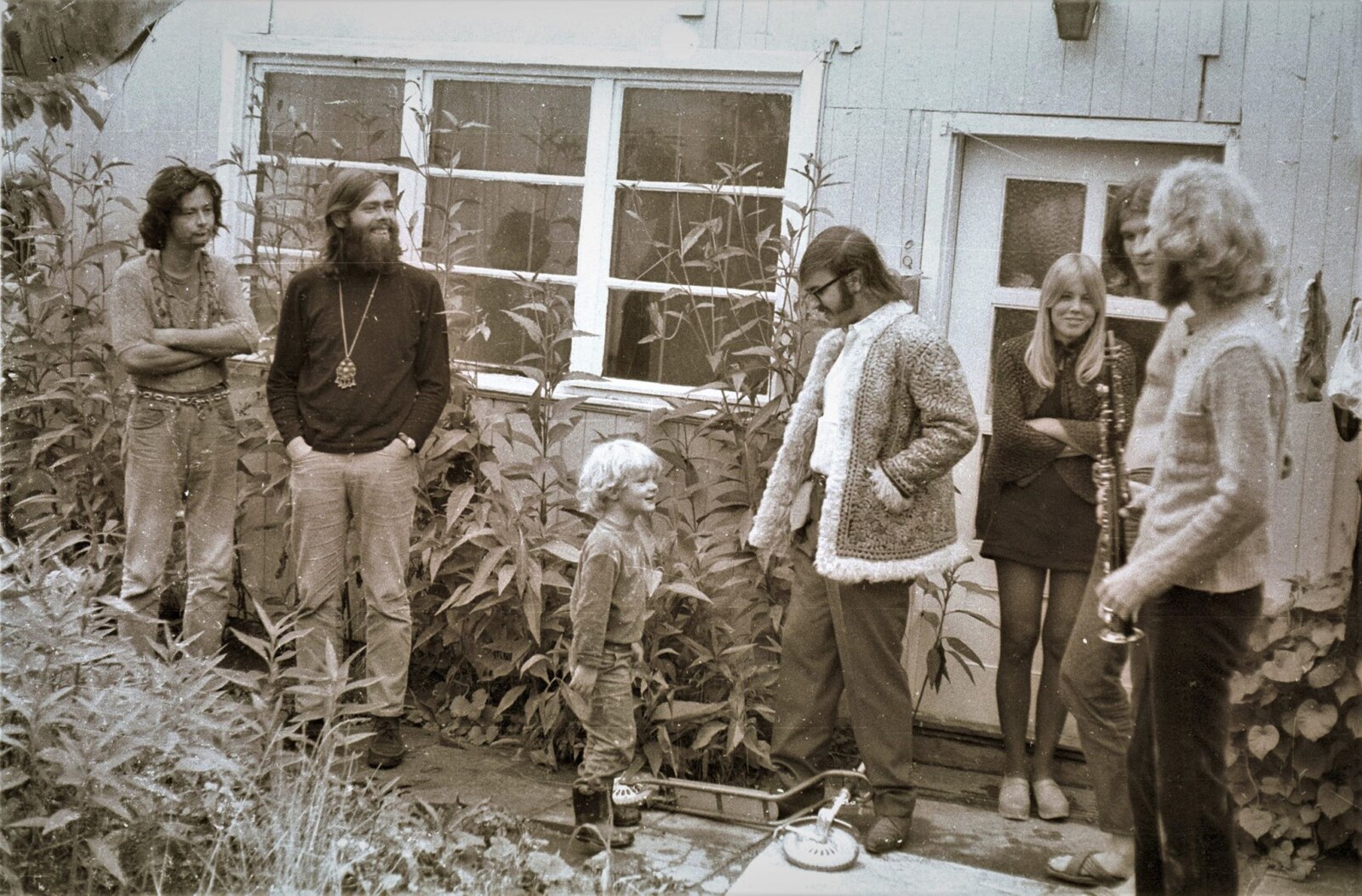
The band released two more albums on Ohr label and reduced its name to ‘Xhol’. You decided to leave the band. What was the main reason for your departure from the band?
In my opinion, too much hash was smoked in the Xhol commune and the compositions almost disappeared. I looked for new bands and tried with Frumpy, which did not fit me well. Finally, I got in touch with Christian Burchard of Embryo. We understood each other quite well. The farewell and financial split of Xhol was difficult. We were like a family. Finally, the roadie of Xhol took me to Nuremberg with the band bus, where I was greeted by Christian. He arrived with an ancient gray VW bus and picked me up. I moved with him in Munich to his flat. The collaboration created another classic of ‘krautrock’: Embryo’s Rache.
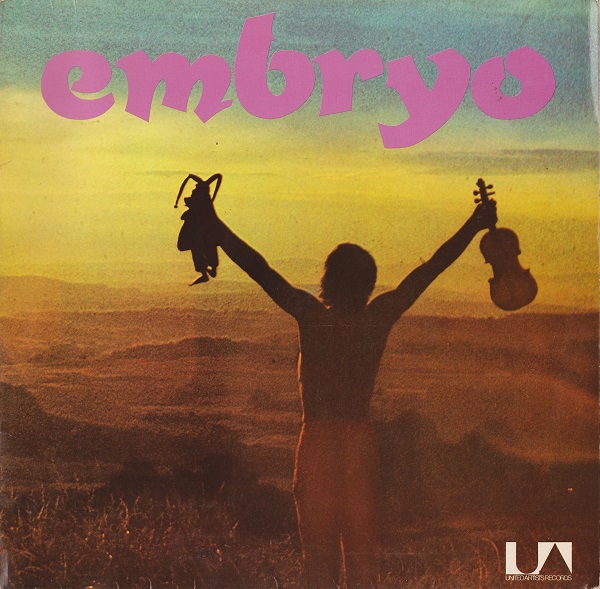
So you weren’t part of Hau-RUK or Motherfuckers GmbH & Co. KG albums?
Originally I wasn’t part of Hau-RUK album. In 1974, Tim Belbe brought me to the Dirks Studios (Dieter Dierks) and we played together with the bassist Norbert Dömling from Missus Beastly, Öcki (Gerhard Egmont “Öcki” Brevern) and Skip (Gilbert “Skip” van Wyck), the wonderful piece “Süden twi Westen”. You can find that piece on Garden of Delights issue from 2002.
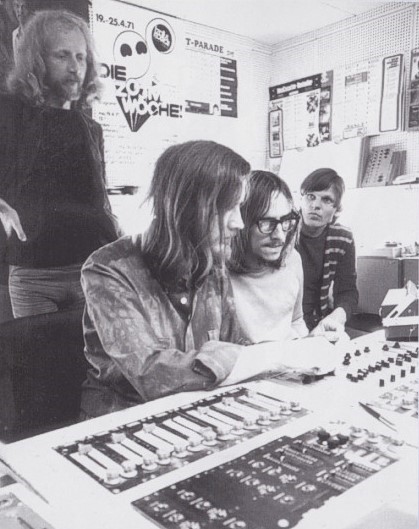
The band dissolved in April 1972. Some fresh recordings were made in 1974 by Belbe, Öcki, Van Wych, and Fischer, one of which was eventually released as a bonus track on the CD issue of Hau-RUK.
Tim (Belbe) had some money and said to Dieter Dierks: “Let all the tape machines run. We play free.” In the studio stood a Hammond with a real Leslie speaker, which Öcki never had before. He drove off fully, as you can hear. It seemed to me as if everyone wanted to prove that he is still fully fit as a musician. It was great fun.
What about Altena 1969 release?
At that time James Rhodes was still there, so we could play the “Freedom Opera”. Heinz Bonsack was a jazz fanatic, but we liked each other as fusion guys. Later he gave recordings to Tim Belbe, which were then edited and issued by Garden of Delights. Walter (Garden of Delights) wanted to take out the proverbs of Tim Belbe. But I urgently asked him to keep everything in there, as this was typical for the performances of Xhol and belonged to it. Tim was just the “Rampensau” (show maker). Once he was even arrested off the stage by the police, what a privilege, haha.
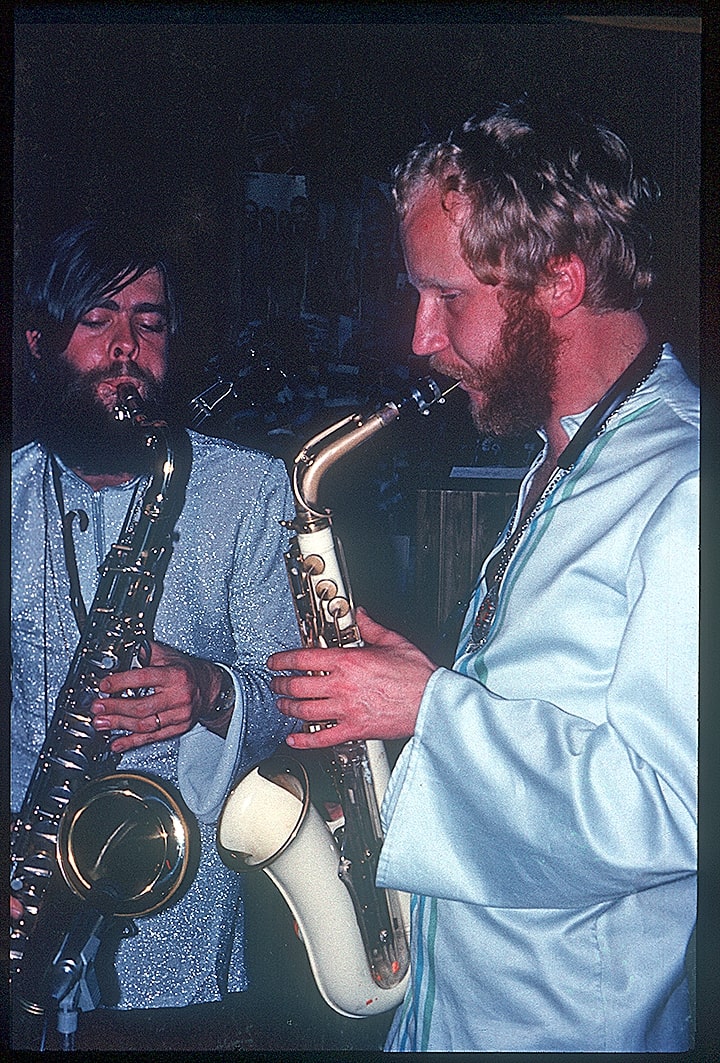
You also appeared on other albums. As you mentioned you joined Embryo after Xhol Caravan. How was that?
I lived with Christian Burchard and his girlfriend Eva in an apartment in Munich and played alto sax and flute in the band. We worked on a new titles that would later appear on the album. Edgar Hofmann played the violin and soprano saxophone, but Christian thought it would be better if I play the flute. Unfortunately, I decided to do so. Therefore, you can hear me on the Live (Bremen 1971, Garden Of Delights 2003) album and Embryo’s Rache only as a flutist.
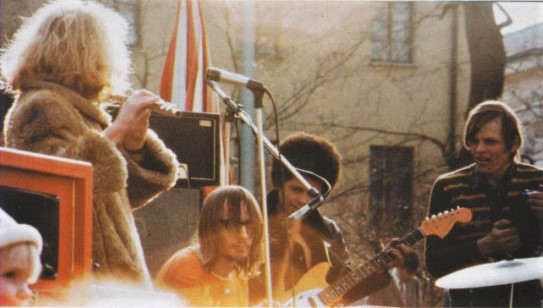
What else do you remember from Embryo’s Rache?
Christian was very active and quite authoritarian guy. He invited black keyboardist Jimmy Jackson, also called Tabarin Man. He played with us on the recordings at Dirks’ studio. He turned to be an outstanding musician, with a very ‘vital’, bluesy style and definitely shaped the sound of the album. But that was not enough for Christian. When all the recordings were done, he still let the singer Franz Böntgen sing the song “You Can’t Wait” over my flute solo, without asking me. The other lyrics I sang included “Espagna si, Franco no” (“Spain Yes, Franco Finished”) and it had a sentence in it: “Revolution is the only way!”. So, the music was used as a kind of orchestration with fantastic sounds by Jimmy Jackson. The title of mine “Centipede” became a kind of mini hit. There is also a live video of it on Youtube from the Festival Landshut Free Open Air 71. The photo on the cover of the album shows Edgar Hofmann from behind with his violin and the harlequin as a symbol.
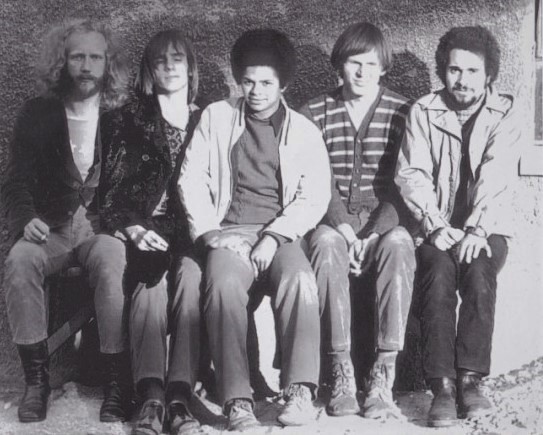
And you also appeared on Missus Beastly debut. What do you remember from those recording?
Yes, I was only part of one piece done by Missus Beastly.
How about your label Sonnenengel Musik?
The label Sonnenengel Musik belongs to me and there are 6 releases altogether, 5 of them with my flute music with different musicians. From 1988 to 1992, I had a meditative phase, during which I worked as a student. Learned techniques of self-pacification and deep relaxation. During this time I developed the technique of ‘intuitive flow’, an improvisational music in the state of relaxation. The albums Fly Together, Emotional, Windprayer and Hills of Heaven are an intense result of this time and my friendship with the Wiesbaden guitarist Tilmann Höhn, who has been a professional musician with bands like Hotel Bossanova and Frankfurt City Blues Band and others for many years. He has also performed with Xhol Caravan in 2003 and 2004, when Tim Belbe was still there. There’s also CD entitled Best of Hans Fischer and Friends.
Is there any unreleased material?
There is also a recording of the Xhol Caravan at Jazzclub Hamburg 1969, which I have on CD and which is very intensive. One would have to acquire the rights.
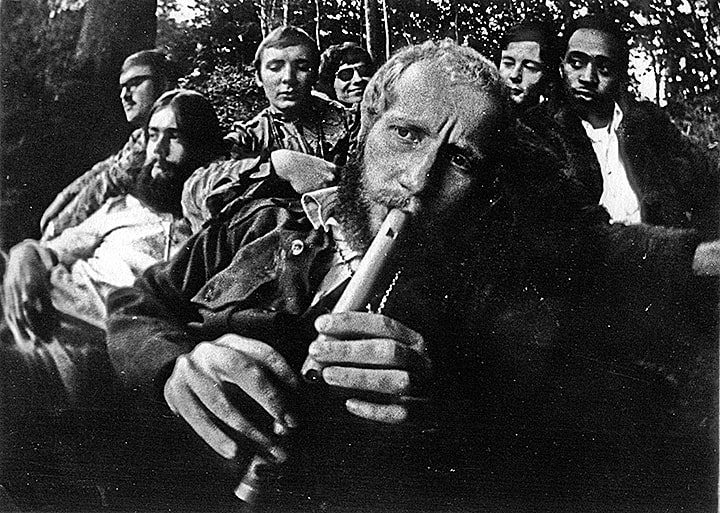
What currently occupies your life? Any future projects we should expect?
The current Xhol Caravan consists of the founders Klaus Briest and me, and partly of musicians who had other bands after the dissolution of Xhol with Tim or Öcki. The saxophonist is Eberhard Emmel and the singer Eric Klingenberg, but we also have my son Leo Fischer on the guitar. I had a band playing bossanova standards with my son for several years. There is a demo CD with the singer Kristina Kristoffersen. Our drummer, Darwin Berger is only 24 years and Markus Kieslich on keyboard are both stroke of luck. You can hear him with Xhol Caravan on Youtube playing “Molde Canticle”.
What does improvisation mean to you and to your perception?
Improvisation is the actual creative act full of attention to the timeline and delicious ‘brain food’.
Thank you for taking your time. Last word is yours.
After Embryo, I was in Vienna for 3 months and participated in the 1972 Wiener Festspiele in the Gorilla Gorilla music band, along with Charly Ratzer and Peter Wolf. I then returned to Wiesbaden and played with the bands Out of Nowhere, Lava and Virgo. Then returned to the bourgeois camp, resumed my law studies and became a lawyer in Wiesbaden. My first marriage lasted only three years. In 1991 I married my current wife Lilli and we got two children together. We had a colorful family life. The music never let me go and still does not. It is a great feeling that we have left something that still exists and that we can still develop something new. Thank you!
– Klemen Breznikar

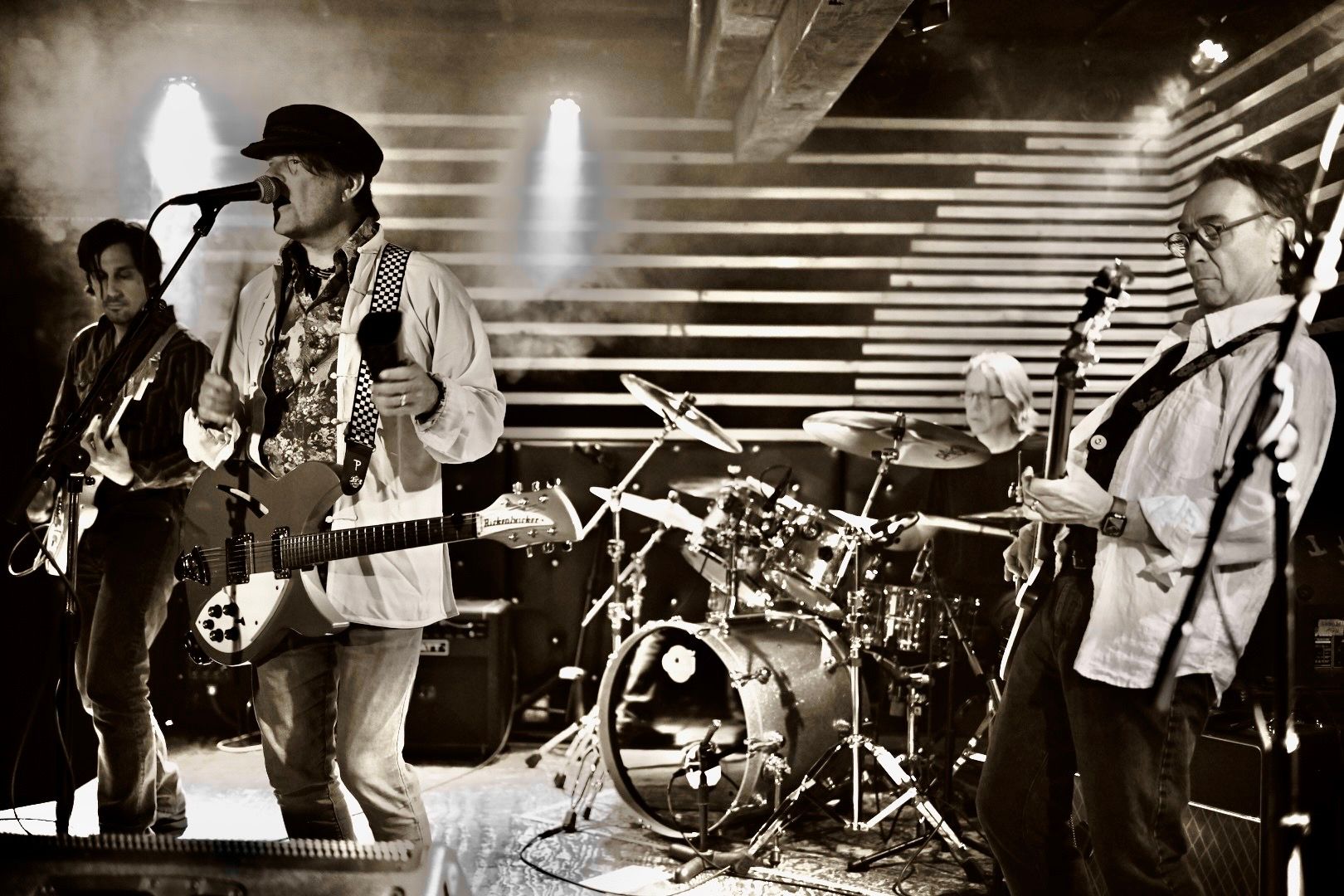
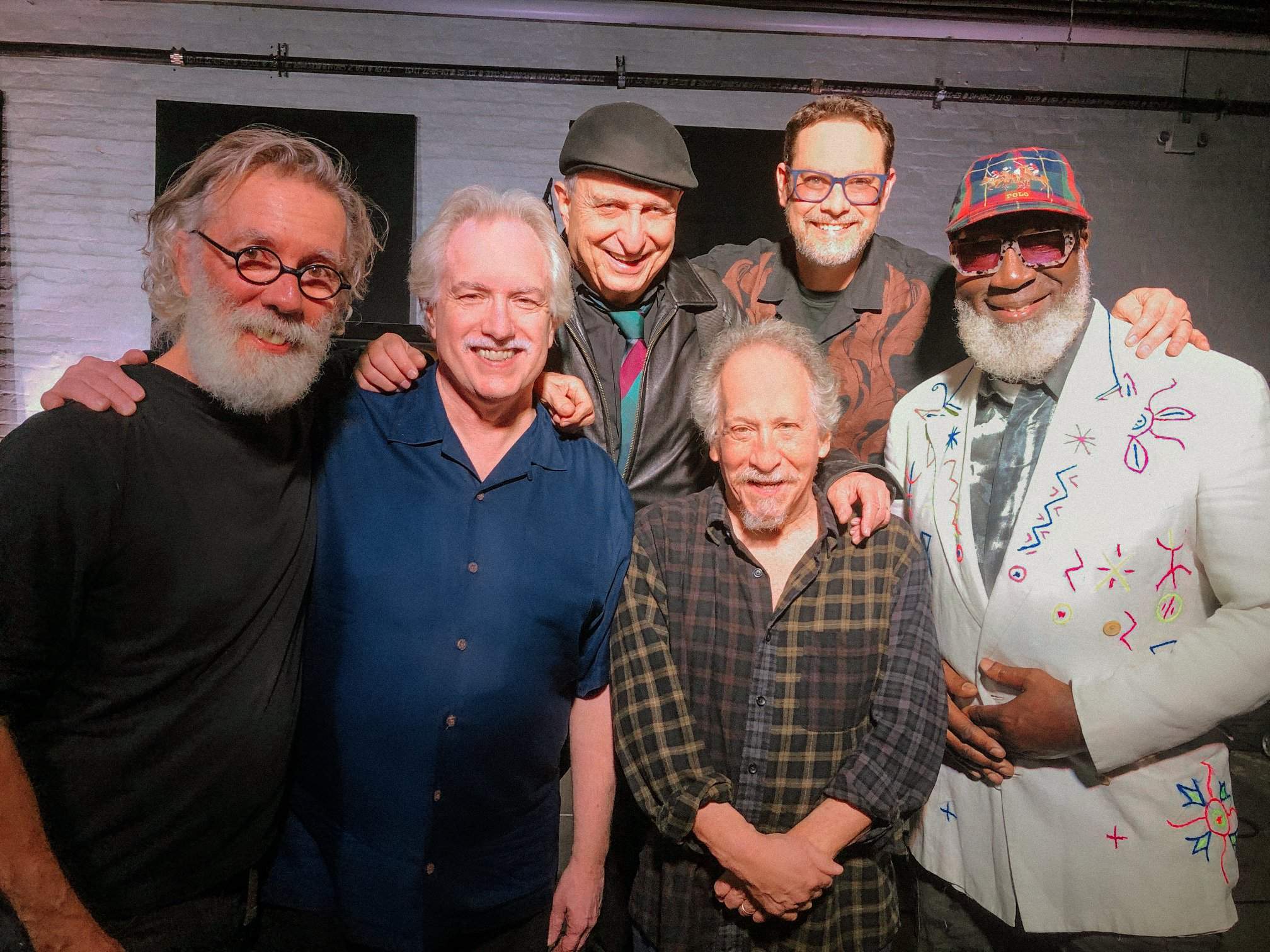
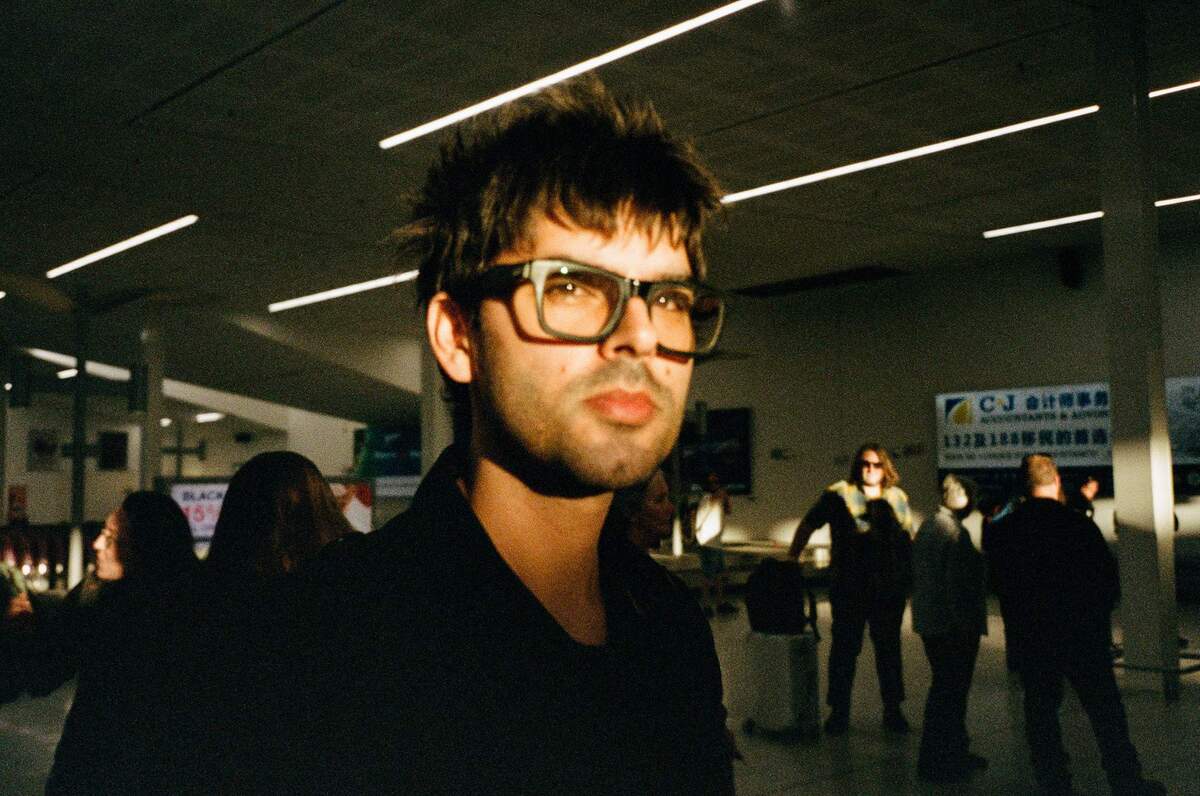
Fascinating interview. I’ve been listening to a lot of Xhol lately; unlike many German bands of the era, their music can initially be a bit underwhelming. No prominent guitars, no motorik beats, no extreme freak-outs. Just a warmly glowing psychedelic soul vibe oozing from their music, for which the “Electrip” cover art is the perfect visual representation. Late-night listening nirvana. Just wondering though, what happened to singer James Rhodes? He was a credited songwriter and his vocals on his last collaboration with the band (the Planet Earth/So Down single) melded perfectly with their emerging psychedelic sound. But the internet seems to hold no trace of him.